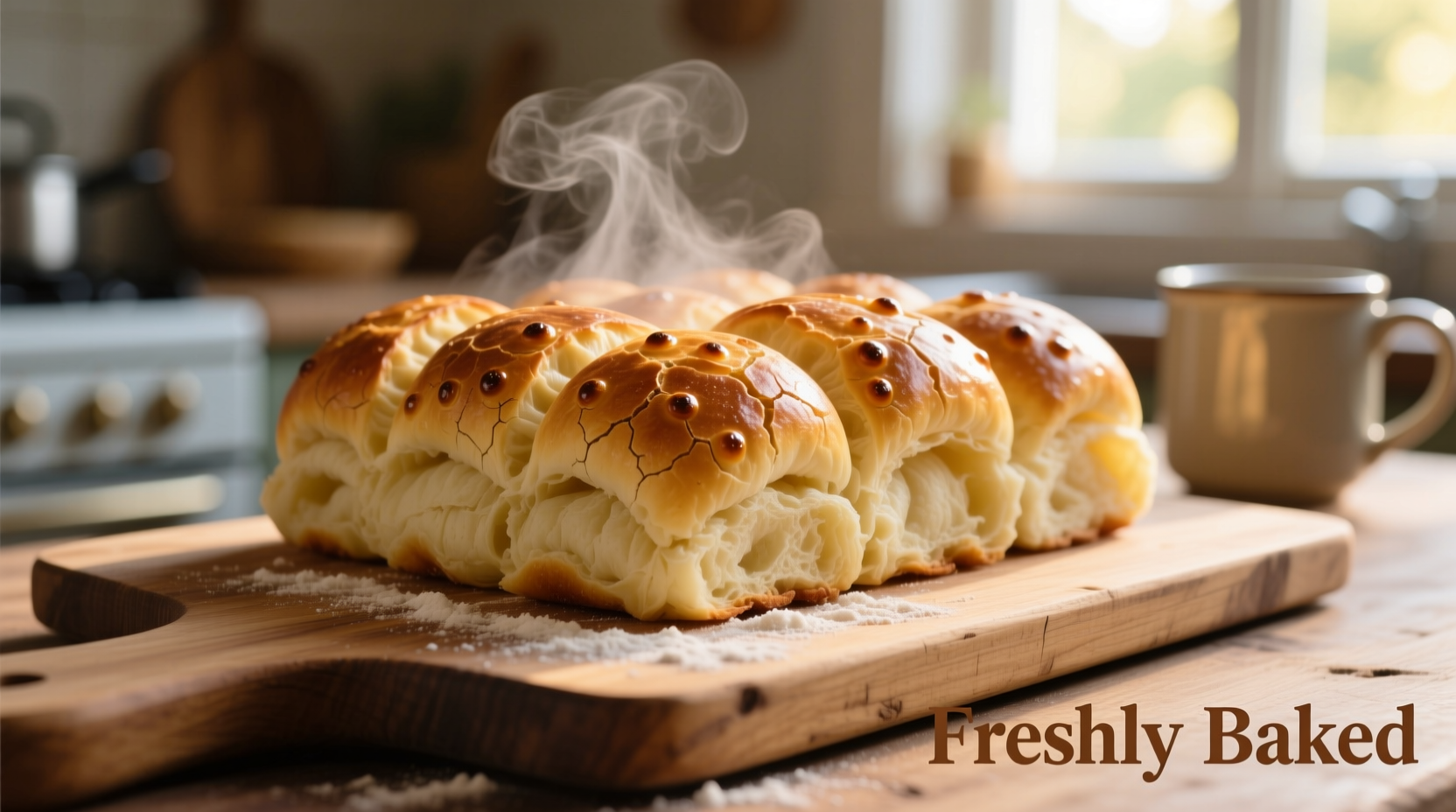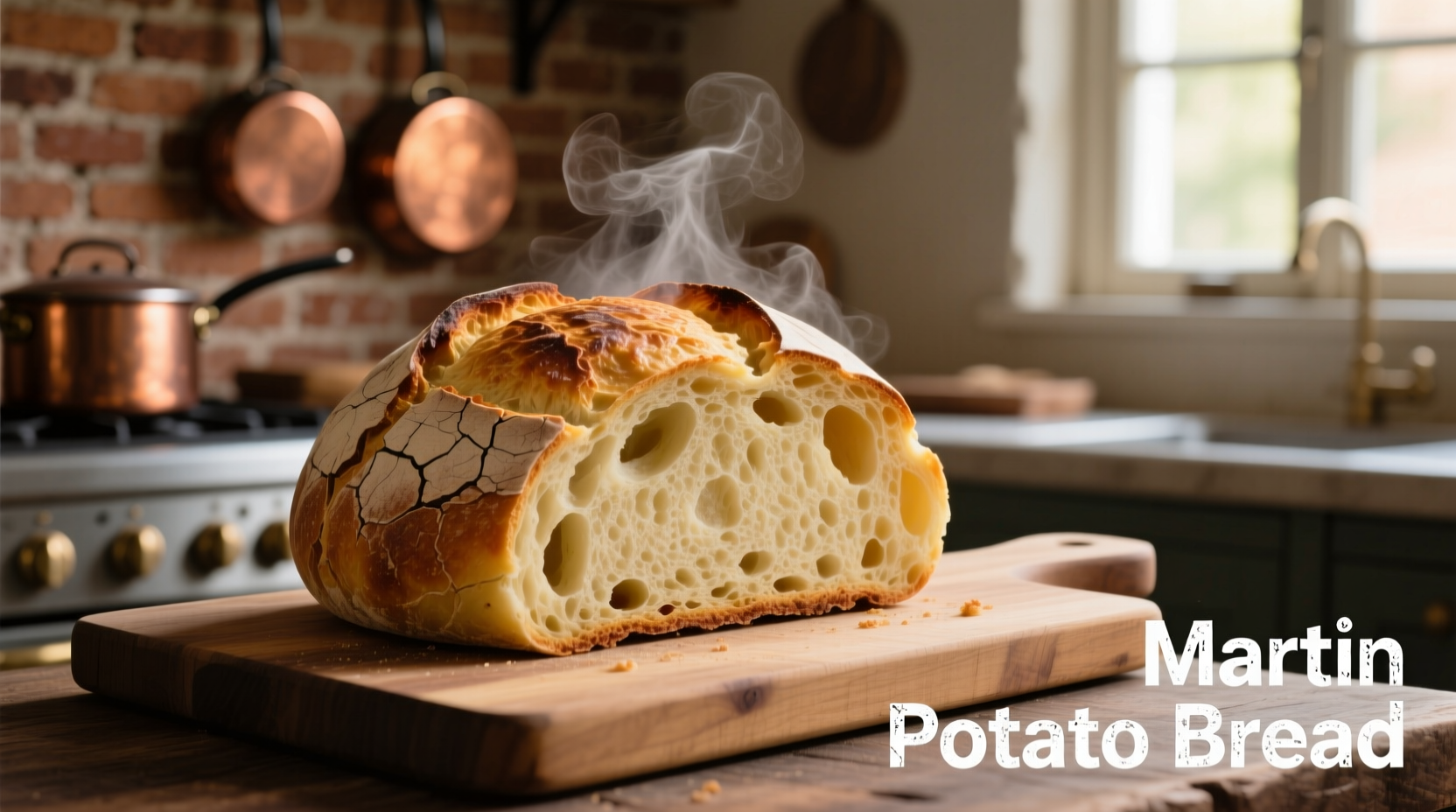Understanding the Martin's Potato Roll Confusion
Many home bakers and grocery shoppers search for "Martin Potato Bread" when they're actually looking for Martin's Potato Rolls - one of America's most popular potato-based bread products. This common confusion stems from how consumers describe the product in everyday conversation. The official product name is Martin's Potato Rolls, not "Potato Bread," though the rolls are made from a potato-enriched bread dough.
What Makes Martin's Potato Rolls Unique
Martin's Famous Potato Rolls stand apart from standard dinner rolls due to their signature ingredient: potato flour. This isn't just a flavor addition—it fundamentally changes the bread's chemical structure. The potato flour:
- Increases moisture retention by 25-30% compared to wheat-only rolls
- Creates a softer crumb that stays fresh longer without preservatives
- Provides subtle sweetness without added sugar
- Enhances browning during baking for that distinctive golden color
| Characteristic | Martin's Potato Rolls | Standard Dinner Rolls |
|---|---|---|
| Primary Leavening | Natural yeast fermentation | Commercial yeast |
| Moisture Retention | Excellent (72+ hours) | Moderate (24-48 hours) |
| Key Ingredient | Potato flour (8-10%) | Wheat flour only |
| Sweetness Level | Naturally sweet | Neutral |
Evolution of America's Favorite Potato Roll
The story of Martin's Potato Rolls spans nearly seven decades of baking innovation. Here's how this humble roll became a staple in American kitchens:
- 1955: Lloyd Emory Martin starts baking rolls in his Maryland kitchen using a family recipe that included potato flakes
- 1970s: The bakery transitions to commercial production, perfecting the potato flour incorporation process
- 1989: Introduction of the distinctive yellow packaging that's now instantly recognizable
- 2000s: Expansion beyond rolls to include potato hamburger buns and other potato-enriched products
- Present: Available in over 90% of US grocery stores, with annual production exceeding 300 million rolls
Where to Find Martin's Potato Products
You'll typically find Martin's Potato Rolls in the bakery section of major grocery chains including:
- Kroger and subsidiaries (Fred Meyer, Ralphs)
- Walmart and Sam's Club
- Publix
- Albertsons and Safeway
- Costco (in larger multi-pack formats)
Look for the signature yellow packaging with the Martin's logo. If your local store doesn't carry them, most will special order upon request. The company maintains a store locator on their official website for convenience.
Homemade Potato Roll Alternatives
If you can't find Martin's Potato Rolls or prefer baking from scratch, here's a professional baker's approach to creating similar results at home. The key is properly incorporating potato into your dough:
- Use 1 cup of cooled mashed potatoes (not instant) per 3 cups of flour
- Add potato water (the water used to boil potatoes) instead of regular water
- Maintain dough temperature between 75-80°F during proofing
- Bake at 375°F for 18-22 minutes until internal temperature reaches 190°F
Professional bakers note that the potato-to-flour ratio is critical—too much potato creates a gummy texture, while too little won't deliver the signature moisture. The ideal ratio is 25-30% potato by weight relative to flour.

Why Potato Makes Better Bread
Food science explains why potato-enriched bread outperforms standard wheat bread. According to research from the USDA Agricultural Research Service, potato flour contains natural sugars and enzymes that:
- Feed yeast more effectively during fermentation
- Bind with gluten proteins to create a more elastic dough
- Retain moisture through starch retrogradation prevention
- Develop richer flavor compounds during Maillard reaction
This scientific advantage is why professional bakers have used potato in bread recipes for centuries, long before Martin's commercialized the concept for American consumers.
Common Questions About Potato Rolls
Many consumers wonder about storage, substitutions, and the nutritional profile of these popular rolls. Here's what you need to know:
- Freezing: Martin's Potato Rolls freeze exceptionally well—place in airtight container for up to 3 months
- Substitutions: Works well for hamburger buns, slider buns, and even as a base for French toast
- Nutrition: Slightly higher in carbohydrates than standard rolls but with more natural vitamins from potato
- Allergens: Contains wheat and dairy (butter is used in the recipe)











 浙公网安备
33010002000092号
浙公网安备
33010002000092号 浙B2-20120091-4
浙B2-20120091-4